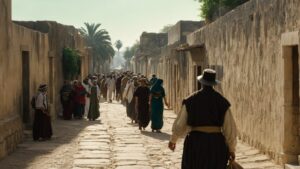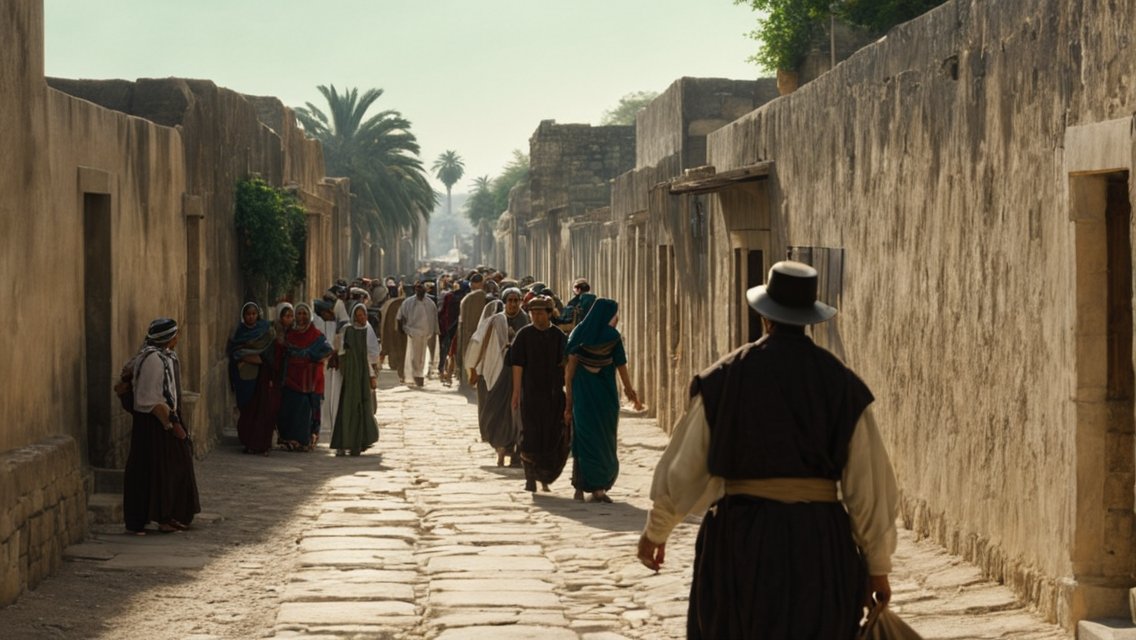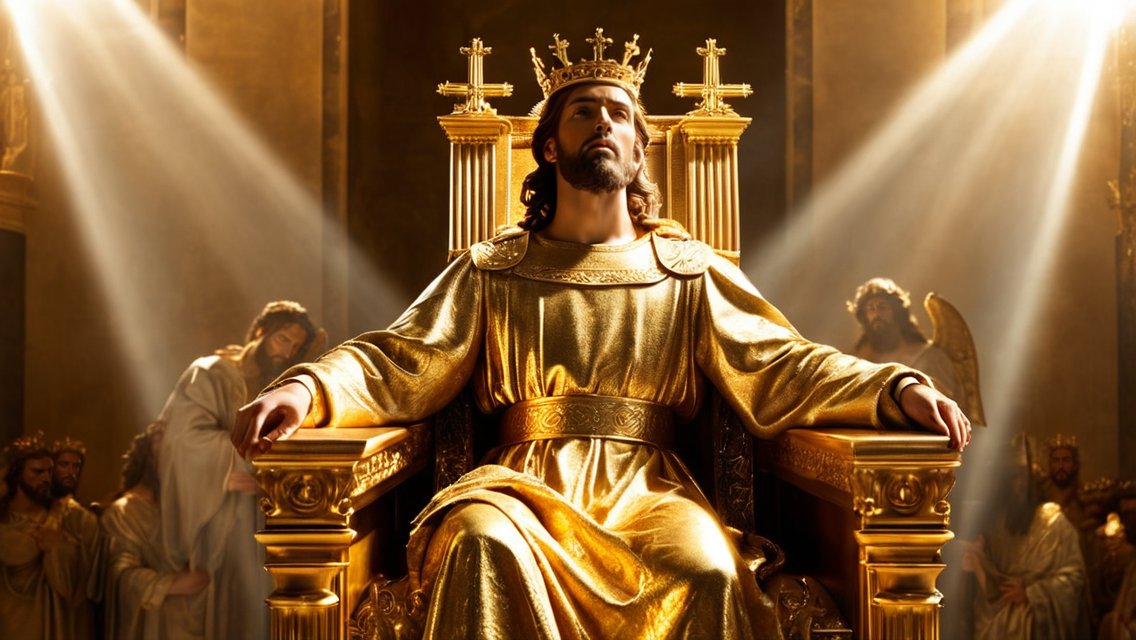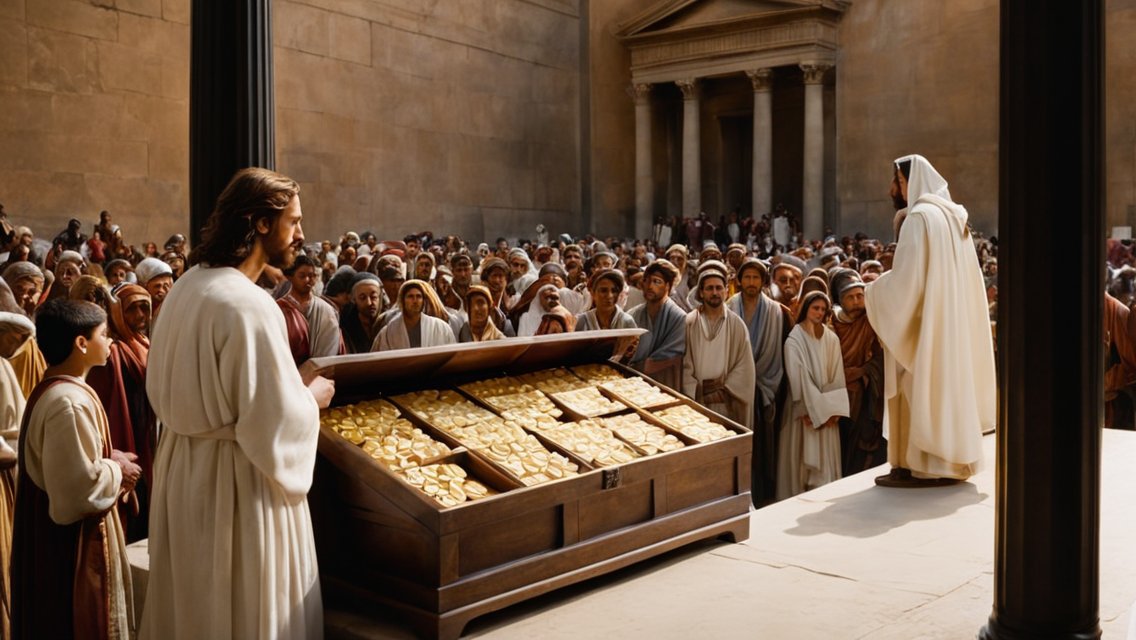Eighteenth Sunday Homily Ordinary Time Year B
Readings: Ex 16:2-4, 12-15, Eph 4:17, 20-24, Jn 6:24-35
The Generosity of the Baker – Story
This story echoes the themes of compassion and generosity found in the homily. Click here
1st Reading – Exodus 16:2-4, 12-15
2 The whole Israelite community grumbled against Moses and Aaron.
3 The Israelites said to them, “Would that we had died at the LORD’s hand in the land of Egypt, as we sat by our fleshpots and ate our fill of bread! But you had to lead us into this desert to make the whole community die of famine!”
4 Then the LORD said to Moses, “I will now rain down bread from heaven for you. Each day the people are to go out and gather their daily portion; thus will I test them, to see whether they follow my instructions or not.

12 “I have heard the grumbling of the Israelites. Tell them: In the evening twilight you shall eat flesh, and in the morning you shall have your fill of bread, so that you may know that I, the LORD, am your God.”
13 In the evening quail came up and covered the camp. In the morning a dew lay all about the camp,
14 and when the dew evaporated, there on the surface of the desert were fine flakes like hoarfrost on the ground.
15 On seeing it, the Israelites asked one another, “What is this?” for they did not know what it was. But Moses told them, “This is the bread that the LORD has given you to eat.”
Responsorial Psalm – Psalms 78:3-4, 23-24, 25, 54
R. (24b) The Lord gave them bread from heaven.
3 What we have heard and know,
and what our fathers have declared to us,
4 We will declare to the generation to come
the glorious deeds of the LORD and his strength
and the wonders that he wrought.
R. The Lord gave them bread from heaven.
23 He commanded the skies above
and opened the doors of heaven;
24 he rained manna upon them for food
and gave them heavenly bread.
R. The Lord gave them bread from heaven.
25 Man ate the bread of angels,
food he sent them in abundance.
54 And he brought them to his holy land,
to the mountains his right hand had won.
R. The Lord gave them bread from heaven.
2nd Reading – Ephesians 4:17, 20-24
Brothers and sisters:
17 I declare and testify in the Lord that you must no longer live as the Gentiles do, in the futility of their minds;
20 that is not how you learned Christ,
21 assuming that you have heard of him and were taught in him, as truth is in Jesus,
22 that you should put away the old self of your former way of life, corrupted through deceitful desires,
23 and be renewed in the spirit of your minds,
24 and put on the new self, created in God’s way in righteousness and holiness of truth.
Alleluia – Matthew 4:4B
R. Alleluia, alleluia.
4B One does not live on bread alone,
but by every word that comes forth from the mouth of God.
R. Alleluia, alleluia.
Gospel – John 6:24-35
24 When the crowd saw that neither Jesus nor his disciples were there, they themselves got into boats and came to Capernaum looking for Jesus.
Homily For Eighteenth Sunday
God Rains Rice and Rotis
“It is my Father who gives you bread from heaven” (In)
One evening, Stella, who owned a small bakery, saw a small skinny boy hungrily eyeing her bakes and cakes. Moved with compassion, she asked him why he was begging. Crying, the boy narrated how he was abandoned by his parents and survived by begging. “Come,” said Stella, “I’ll give you a good meal and will see that you’re sent to school.” Taking the boy home, she fed him with the finest food he’d ever eaten – vegetables, rotis, fish curry, rice and pastries. Guzzling the goodies, the little boy asked: “Are you God?” Smiling, Stella said, “You could say that I’m God’s child.” The little boy replied, “I guessed that you’re related to God!”
God gives in abundance. The whole 6th I chapter from john’s Gospel ii a beautiful reflection on bread and food, God’s graciousness and human greed. This theme also runs through the first reading from Exodus. Not satisfied about attaining freedom and seeing the wonders that God had worked, “The whole community of the sons of Israel began to complain against Moses and Aaron.” And their chief complaint is about food. They long for the fleshpots of Egypt – “the meat and bread we could eat to our heart’s content!”
Like patient parents who give in to their greedy kids’ appetites, God says to Moses: “Now l will rain down bread for you from the heavens.” Hey presto, the Lord sends down manna in abundance. And lest the people still crib about eating dry bread, God also makes sure that they have their meat in the form of quails. The responsorial psalm will sing out the glory of God “who gave them bread from heaven.”
In the gospel Jesus complains to the crowds: “You are not looking for me because you have seen the signs but because you had all the bread you wanted to eat.” Jesus then cautions his people: “Do not work for food that cannot last, but work for food that endures to eternal life, the kind of food the Son of Man is offering you.” What kind of food is this? Does Jesus distinguish between ‘spiritual food and ‘material food’?
We must understand today’s gospel passage in the light of the previous Sunday’s passage of Jesus’ feeding of the multitude with ‘material food’, so to say, while also giving them ‘spiritual food’ in the form of discourses about Life. Indeed, Jesus does not dichotomize between spiritual and earthly, but desires that everything be seen in the light of our eternal destiny to be united with God as children of God.
“I am the bread of life,” says Jesus, “whoever comes to me will never be hungry; whoever believes in me will never thirst.” Do I go to Him for spiritual sustenance? Do I believe that his ‘good news’ provides pointers to solve massive problems like world hunger and unequal distribution of the earth’s resources? In the Eucharist, Jesus gives himself to us as bread – Panis Angelicus. But, the broken bread must be shared with all God’s children. Do our Eucharists lead us to intimate encounters with the Bread of Life?
Desmond Tutu’s favourite grace was: “Lord God, you fed the children of Israel with manna and quails, Thank you for feeding us, your children with a better diet than that.” Indeed, there is a superabundance of food production and commodity consumption in the world today. But, who profits? A shocking survey states that North Americans waste as much as 30% of their food every day while the poor of the so-called ‘Third World’ eat leftovers picked from garbage bins.
God sends rain upon the earth; and as Job says: “As for the earth, out of it comes bread.” (Job 28:5). But, between the rain/earth and bread/rice there are so many processes and the toil, tears and blood of so many people. Thus, in the daily offering of bread and wine at the Eucharist, we bring to the altar God’s goodness and also God’s children with their hungers and deprivations. Like Stella, couldn’t we feed more people with basic needs of food, shelter, clothing and education? Then, many more will ask us, “Are you God?”





